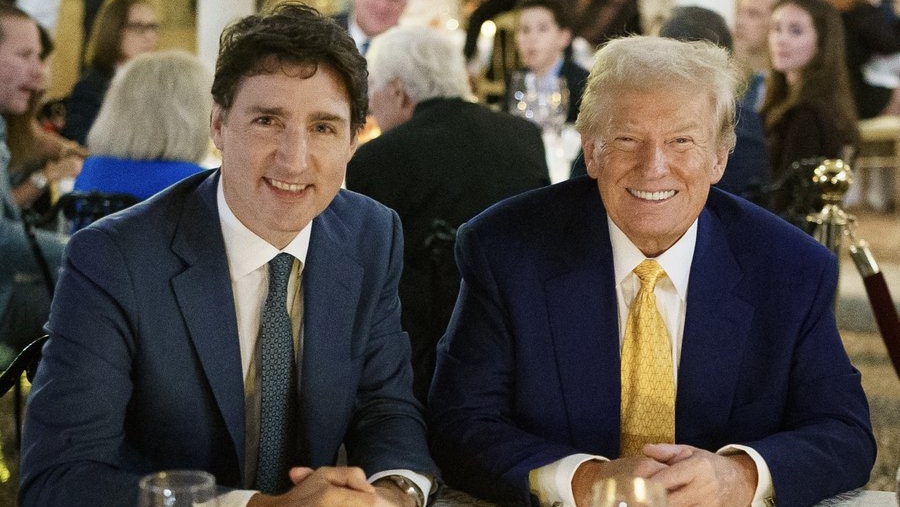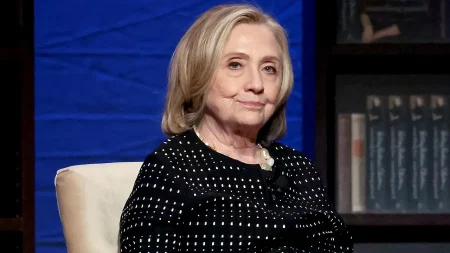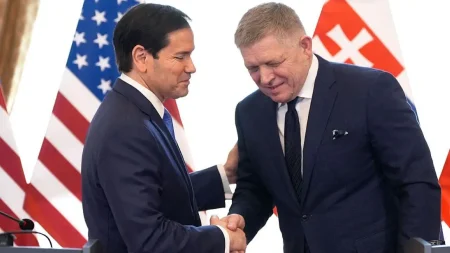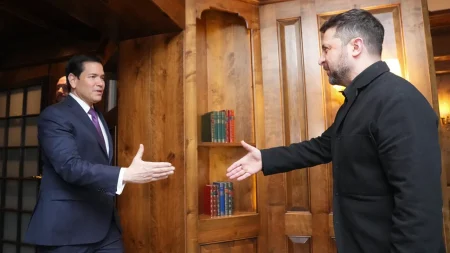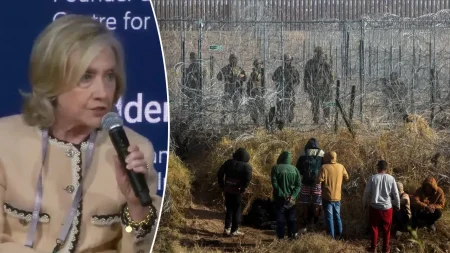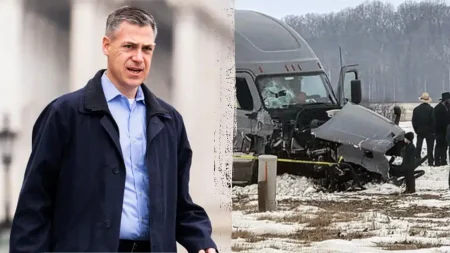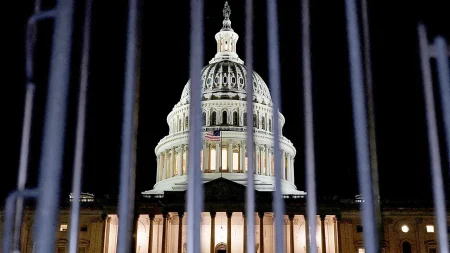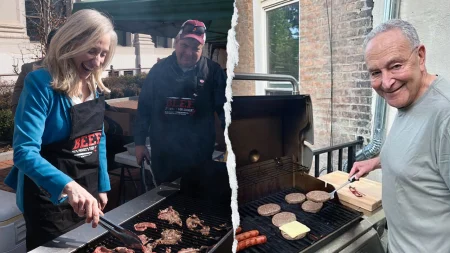In a recent meeting at Mar-a-Lago, President-elect Donald Trump expressed a somewhat joking yet pointed comment to Canadian Prime Minister Justin Trudeau regarding the future of Canada in relation to U.S. trade and border policies. Trump’s remarks came in the wake of his threats to impose significant tariffs on Canadian goods—specifically, a proposed 25% tariff—if Canada does not take immediate action to address ongoing trade deficits and issues with illegal immigration. The meeting, which had a friendly atmosphere but contained serious undertones, revolved around key topics such as tariffs, trade balances, and border security.
The context for this conversation was a casual dinner where both leaders engaged in a dialogue over crab cocktails and oysters. Trump reiterated his frustration regarding what he perceives as Canada’s failure to control the flow of illegal drugs and immigrants crossing into the U.S. He cited an alarming statistic indicating that individuals from over 70 different countries were entering the U.S. illegally via Canada. Additionally, he pointed to the substantial trade deficit, which he estimated at over $100 billion. This deficit, according to Trump, necessitated a tough stance to ensure Canadian compliance with U.S. expectations regarding trade and border management.
During the discussions, Trump asserted that if Canada was incapable of resolving these issues, the U.S. would have no choice but to implement the tariffs on all Canadian imports starting from his first day back in office. Trudeau, recognizing the potential severe impact of such tariffs on the Canadian economy, attempted to argue against them, but Trump’s response was decidedly provocative and sarcastic. He suggested that if Canada could not sustain its economy without exploiting U.S. trade relationships, perhaps the option of becoming the 51st state should be considered.
This suggestion elicited laughter from those present, including Trudeau, who was caught off guard. Trump further commented that while “prime minister” was a more prestigious title, Trudeau could still serve as the governor of a newly formed state. The exchange indicated Trump’s trademark blend of humor and bluntness, which often accompanies his political negotiations. However, there was a serious subtext, emphasizing his discontent with Canada’s trade practices and immigration policies.
The conversation continued on a variety of topics for nearly three hours, but the light-hearted exchange regarding statehood stood out. While the suggestion was made jokingly, it did reflect Trump’s broader negotiating style, which often involves a mixture of humor and direct confrontation. Trudeau’s team later characterized the dinner as “very friendly and very positive,” focusing more on the successful exchange of views rather than the more sensational suggestion of statehood.
Neither team has publicly commented on the specifics of the jokes or the implications surrounding such proposals, but the meeting’s coverage by media outlets like Fox News indicates that it has sparked discussions about the future relationship between Canada and the U.S. as Trump prepares for his new term. As the exchange demonstrated, the dynamics of cross-border relations might shift significantly depending on how effectively both leaders can manage their respective countries’ interests in the areas of immigration and trade going forward.





